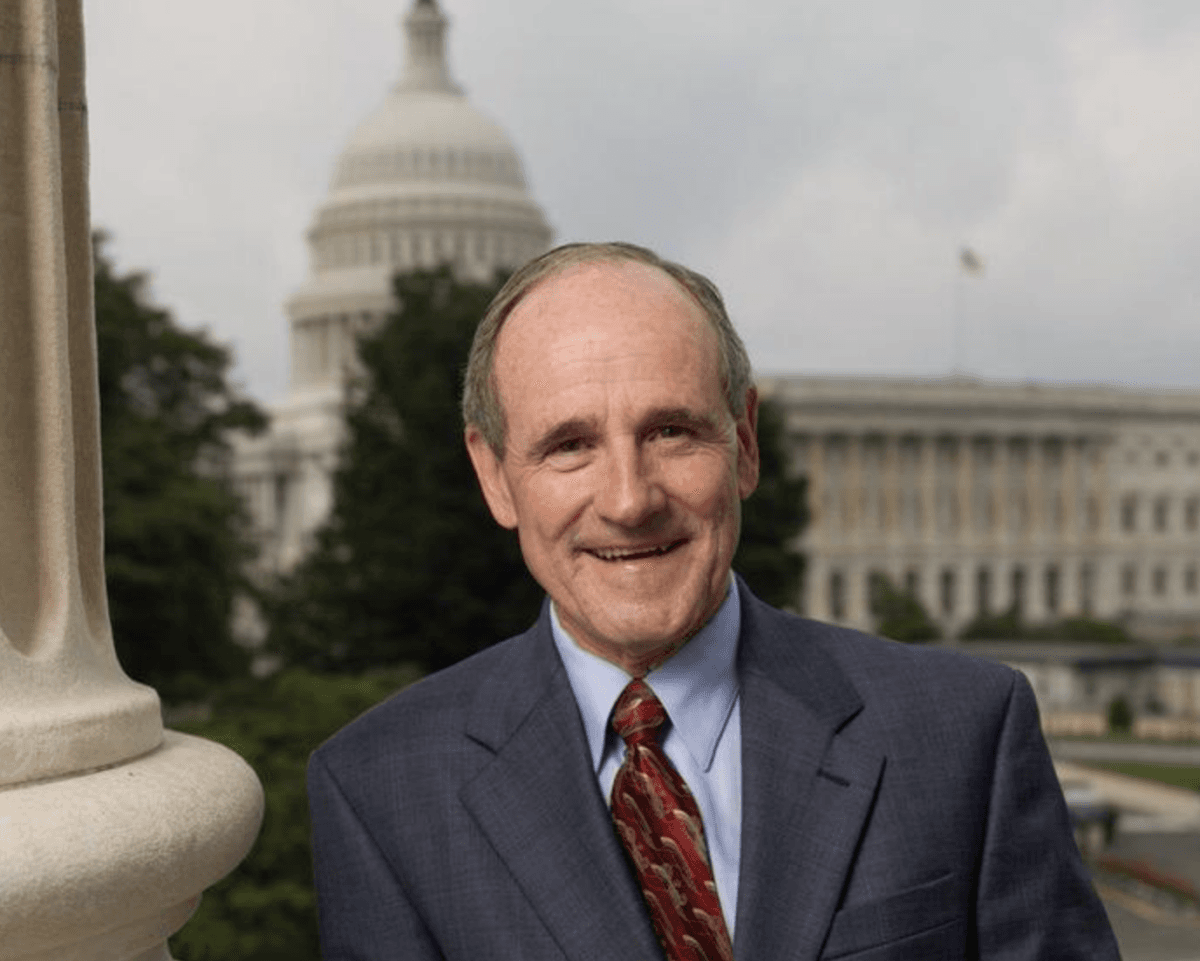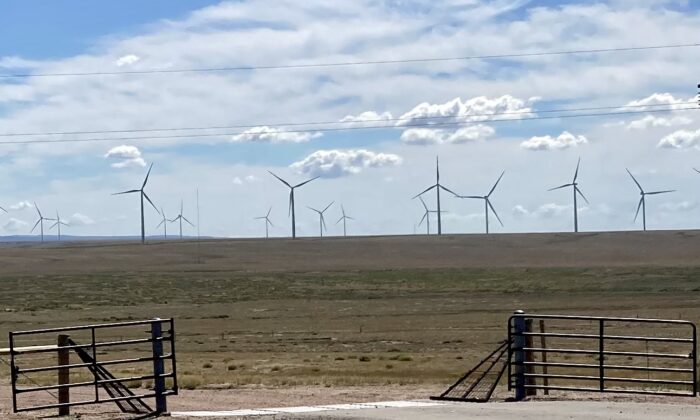The Bureau of Land Management director defended the agency’s approval of a 4,500-acre wind farm over vehement county, state opposition.
An Idaho wind project has been tentatively approved by the federal government over overwhelming opposition from local residents, seven county governments, and the state legislature, raising questions about who, or what, is driving land-use policy on public lands across the West.
If there’s one thing that’s certain, people who live and work in south-central Idaho had no say in the Bureau of Land Management’s (BLM) June 7 final Environmental Impact Statement (EIS) that green lights the Lava Ridge wind project, Sen. James Risch (R-Idaho) said.
During a two-hour June 13 hearing before the Senate Energy and Natural Resources Committee, Mr. Risch and others repeatedly cited the Lava Ridge EIS approval as an example not only of federal overreach but of ignoring local concerns in approving renewable energy proposals from green energy corporations.
“I represent 1.8 million angry people—angry at you, personally,” Mr. Risch told BLM Director Tracy Stone-Manning in her first appearance before a congressional committee since her combative June 2021 confirmation hearing. “I want to put this anger for you into perspective that you will understand.”
He said seven Idaho counties signed onto a 2023 joint resolution opposing the project, noting that the resolution was then unanimously supported by both chambers of the state legislature.
“Your own BLM advisory council voted unanimously not to do this. The tribes submitted comment letters in opposition to this project,” Mr. Risch said, adding that The Friends of Minidoka, a Japanese-American organization that “operates the sacred ground where they had a Japanese internment camp in World War Two,” vehemently opposed it.
“Tens of thousands” of comments opposing the project were filed with the BLM, Mr. Risch said, noting the wind project is designed to funnel electricity into California and offers “no benefit” to local communities.
”Idahoans could not be more clear that they do not support Lava Ridge. Yet, for some reason, the BLM continues to push forward this project that no one in Idaho wants. Can you name anybody or any entity that wants this?” he asked Ms. Stone-Manning.
“Senator, I have seen a couple hundred comments in support from [across] America” for the project, she responded.
Ms. Stone-Manning said local objections were factored into the BLM’s decision to scale back Magic Valley Energy’s (MVE) original proposal for 400 3-megawatt turbines as tall as 740 feet across 9,000 acres to 241 turbines no taller than 660 feet across 4,500 hundred acres.
The wind project has been pushed more than nine miles from the Minidoka site, she said.
“We did … listen very hard to your constituents, and the proposal now is halved and, yet, it will still provide energy for up to 500,000 homes,” Ms. Stone-Manning said.
“Where are those homes located? Yeah, California. You think that makes us happy? Why don’t you put this project in California?” Mr. Risch said.
“Who wants this? Who is pursuing this? Is it you?”

“No. We responded to an application from a company to develop public lands. It’s what we do every day,” Ms. Stone-Manning said.
MVE is a subsidiary of New York City-based LS Power, which has operations in New Jersey, Missouri, Texas, and California.
“So, a company that came forward … and you’re responding to them and ignoring 1.8 million people, plus the entire establishment of our government in the state of Idaho,” Mr. Risch said.
Ms. Stone-Manning said the tentative approval isn’t final until the “record of decision” is enrolled in the Federal Register, and that hasn’t happened yet because the BLM and other federal agencies are reviewing all the comments opposed to the proposal.
Sen. John Barrasso (R-Wyo.) said the EIS approval, despite overwhelming opposition from locals, has alarmed his constituents and raised concerns about how the federal government evaluates public input.
“So, someone from a country like China or Russia or a competitor which doesn’t want us to develop our energy, our mineral resources, are they allowed to submit public comments? Is that correct? Because that’s what we’re hearing,” he said.
“The answer is yes,” Ms. Stone-Manning said before noting: “We read the comments very thoroughly. I think that we can tell when it’s a ‘bot’ and when it’s a Russian and when it’s an actual Idahoan … I don’t understand what you’re getting at.”
“We’re getting at the fact that it seems that the comments [in support] are being counted as equal to those who’ve been on the land for five generations,” Mr. Barrasso said, including comments “coming from communist China.”
Mr. Risch said the approval will be challenged in court—and Jerome County, one of the seven counties opposed to Lava Ridge, has already vowed to do so.
“Senator, I can hear the anger in your voice,” Ms. Stone-Manning said, “and I know that change is difficult.”

